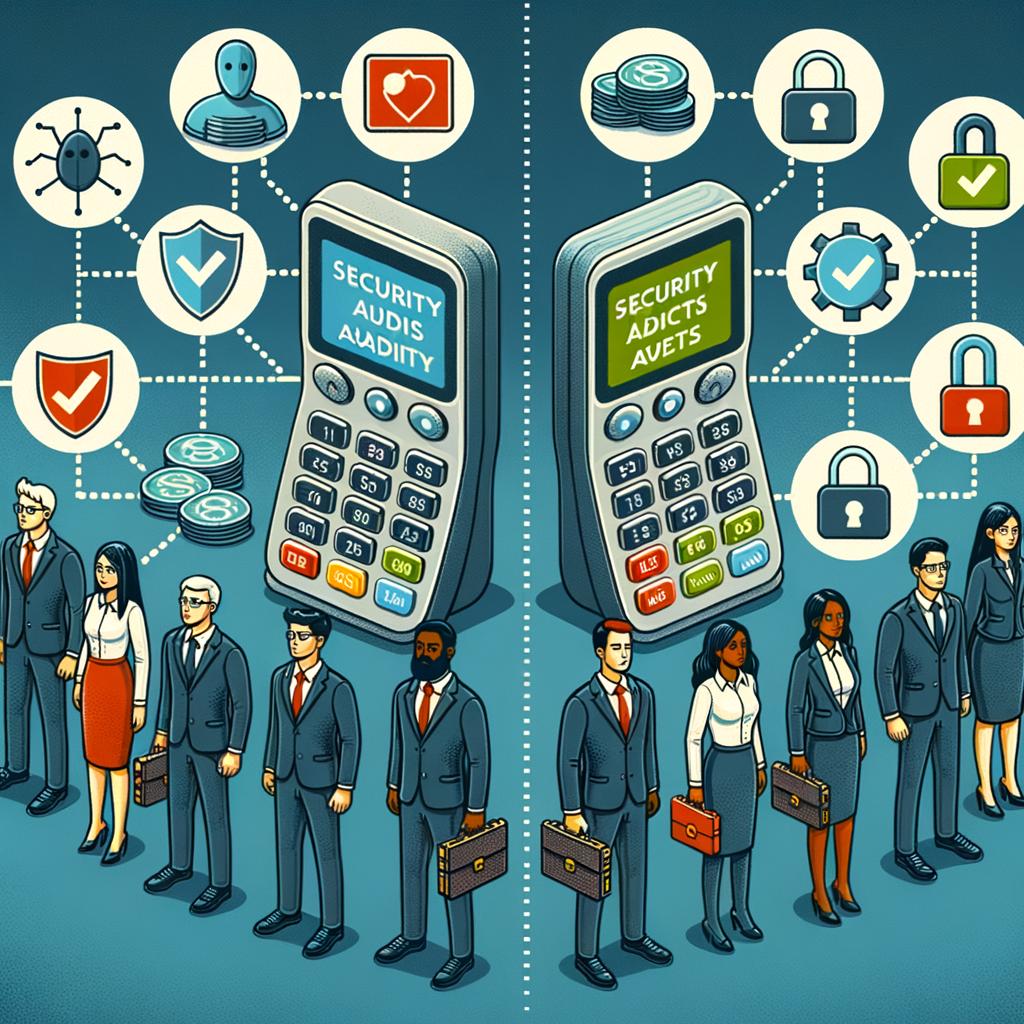The Importance of Regular Security Audits for Payment Systems
Picture this: you’re out shopping for the latest tech gadgets, blissfully swiping your credit card without a care in the world. But little do you know, lurking in the shadows, cyber criminals are plotting to steal your sensitive payment information. This is where regular security audits for payment systems come into play. In this article, we’re diving headfirst into why these audits are crucial in keeping your financial data safe and sound. So grab a cup of coffee and buckle up, it’s about to get secure up in here.
Why Security Audits are Essential for Payment Systems
Regular security audits are crucial for ensuring the integrity and safety of payment systems. These audits help to uncover vulnerabilities and weaknesses in the system that could potentially be exploited by hackers. By conducting these audits on a regular basis, businesses can stay one step ahead of cyber threats and protect sensitive payment information from falling into the wrong hands.
Additionally, security audits help businesses to comply with industry regulations and standards, such as PCI DSS. By demonstrating a commitment to security through regular audits, businesses can build trust with customers and partners, reassuring them that their payment information is being handled securely. In today’s digital age, where cyber attacks are becoming increasingly sophisticated, investing in regular security audits is not just a good practice – it’s essential for the longevity and success of any payment system.
Uncovering Vulnerabilities and Weaknesses in the System
Regular security audits are crucial for payment systems to maintain the integrity and trustworthiness of the system. By consistently reviewing and analyzing the system for vulnerabilities and weaknesses, organizations can proactively address potential threats before they are exploited by malicious actors.
During security audits, experts can uncover hidden flaws or gaps in the system’s defenses that may not be immediately apparent. This allows for timely mitigation measures to be implemented, ensuring that customer data and sensitive information are protected from potential breaches. With the ever-evolving landscape of cybersecurity threats, staying ahead of the curve with regular security audits is essential for safeguarding payment systems against external attacks.
Preventing Data Breaches and Fraudulent Activities
Regular security audits for payment systems are crucial in . By conducting thorough and routine audits, businesses can identify vulnerabilities in their systems and take proactive measures to address them before they are exploited by cyber criminals. These audits help ensure that all security protocols are up to date and that payment processes are secure and protected from any potential threats.
One key benefit of regular security audits is the ability to stay ahead of evolving cyber threats. As technology advances, so do the tactics used by hackers to infiltrate payment systems and steal sensitive information. By regularly assessing the security measures in place, businesses can stay one step ahead of cyber threats and protect their customers’ data from falling into the wrong hands. Additionally, conducting security audits can help businesses maintain compliance with industry regulations and standards, further enhancing the trust of their customers in the security of their payment systems.
Best Practices for Conducting Routine Security Audits
Regular security audits are a crucial part of maintaining the integrity and safety of payment systems. These audits help businesses identify and mitigate potential vulnerabilities that could lead to data breaches or financial loss. By following , businesses can stay one step ahead of cyber threats and protect their customers’ sensitive information.
One key best practice is to schedule security audits on a regular basis, whether it be quarterly, bi-annually, or annually. This ensures that any new vulnerabilities or weaknesses are quickly identified and addressed. Another important practice is to use a combination of automated tools and manual testing to thoroughly assess the security of payment systems. This comprehensive approach helps to uncover both common and complex security issues that could compromise the system. By staying proactive and diligent in conducting security audits, businesses can minimize risks and build trust with their customers.
In Conclusion
So, next time you swipe your card or make a transaction online, remember that behind-the-scenes, security audits are working hard to protect your sensitive information. It’s not just about preventing fraud, but also ensuring your peace of mind. Stay safe, stay secure, and keep those audits running regularly. After all, when it comes to your financial security, it’s better to be safe than sorry.






